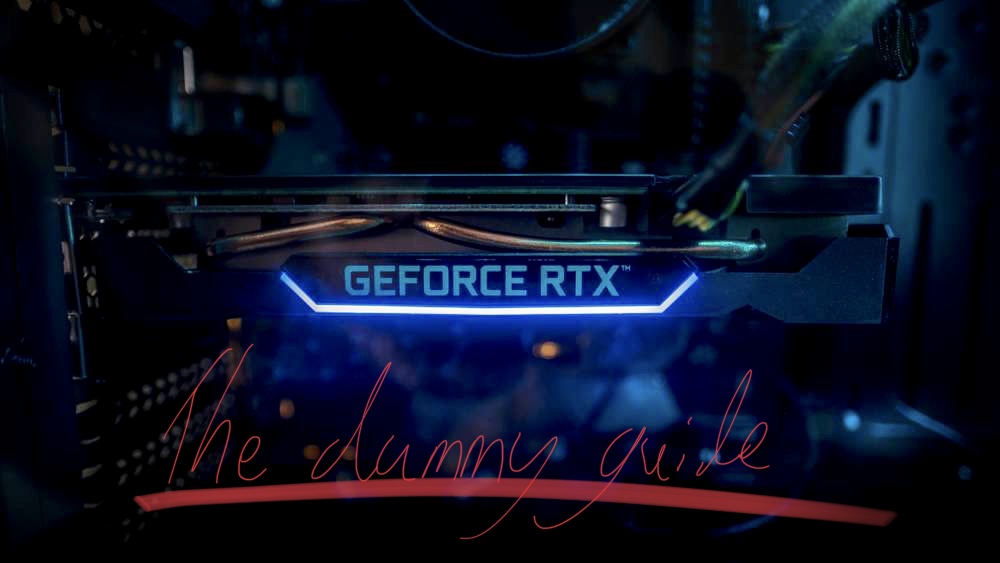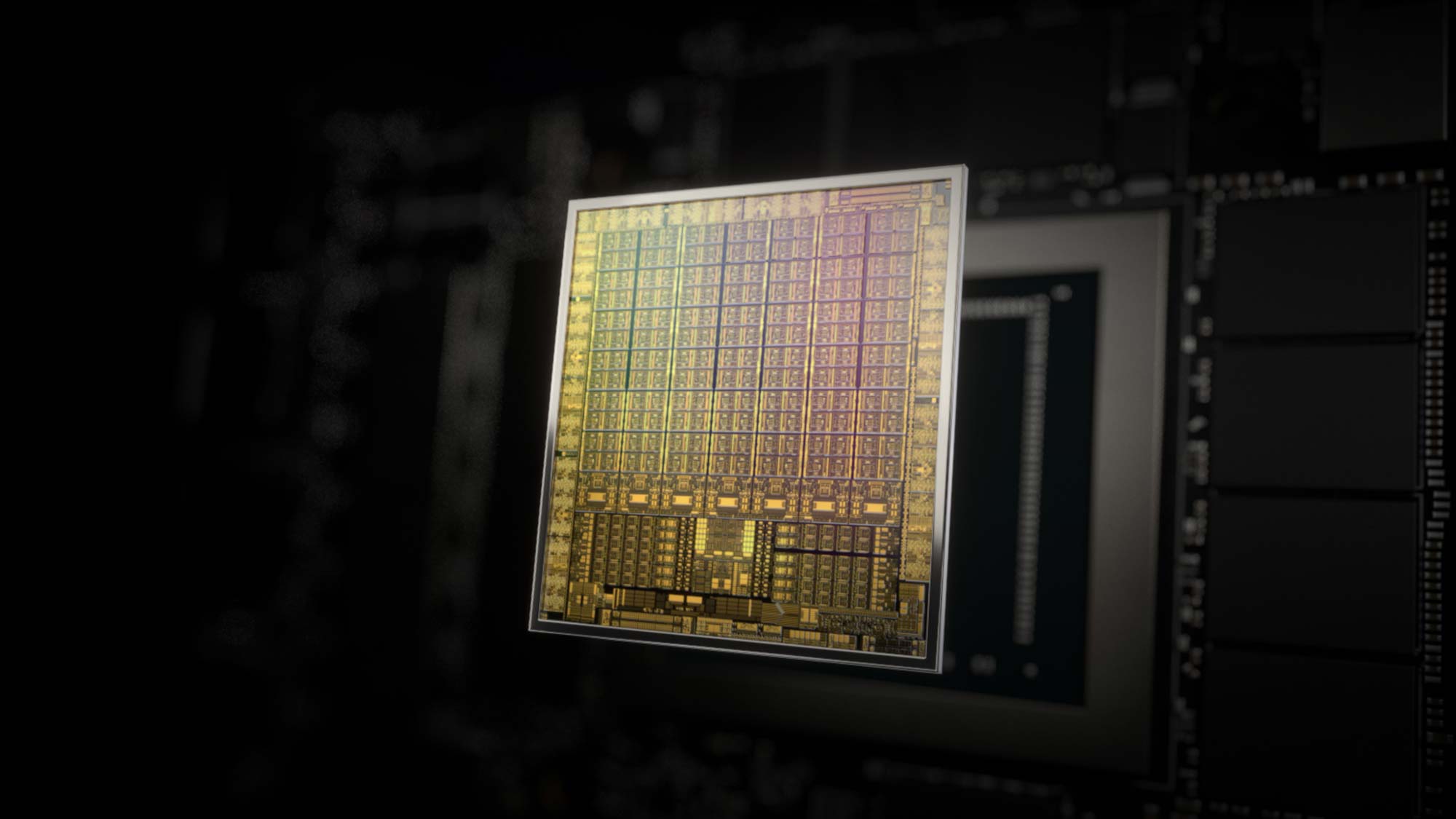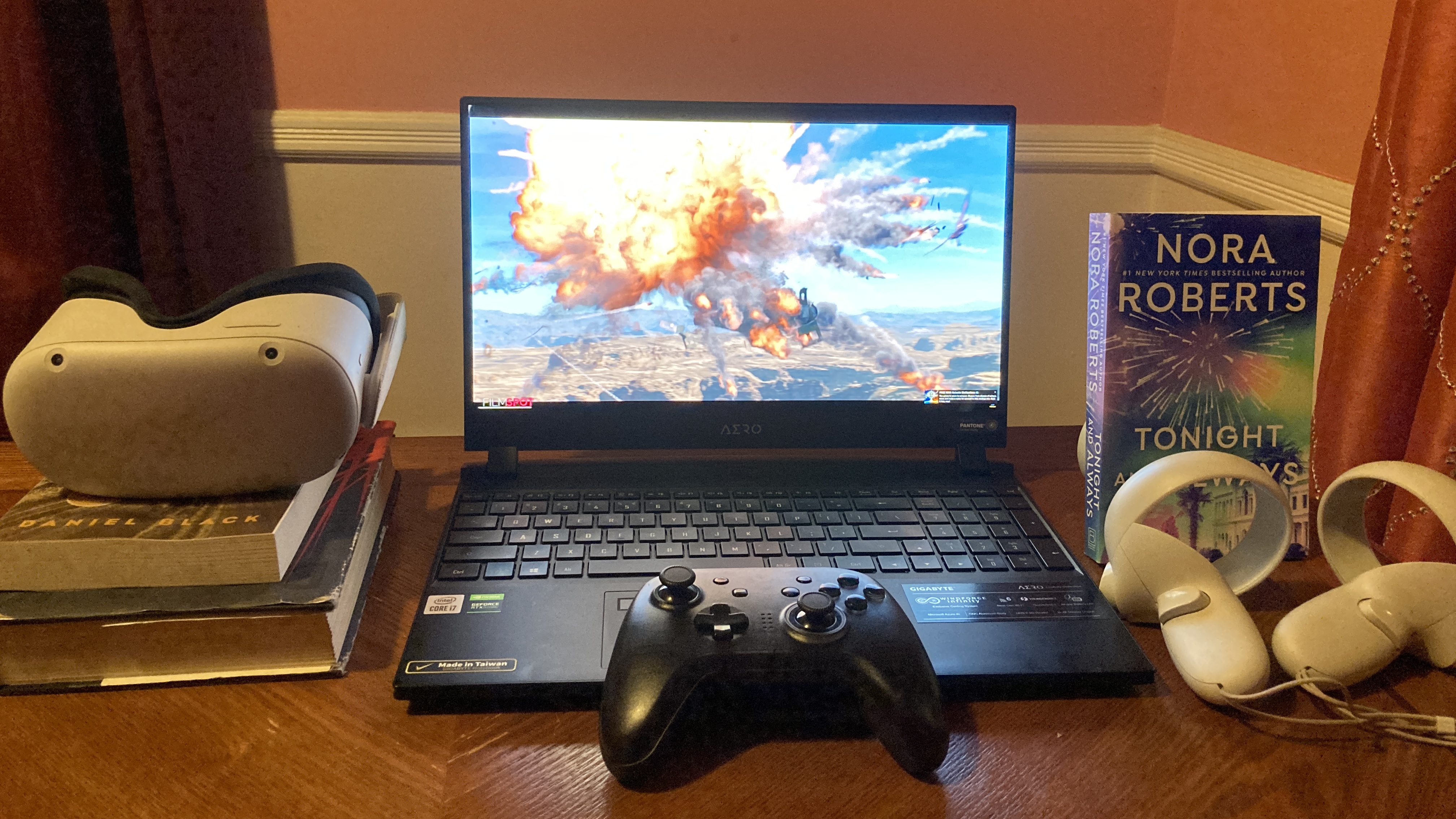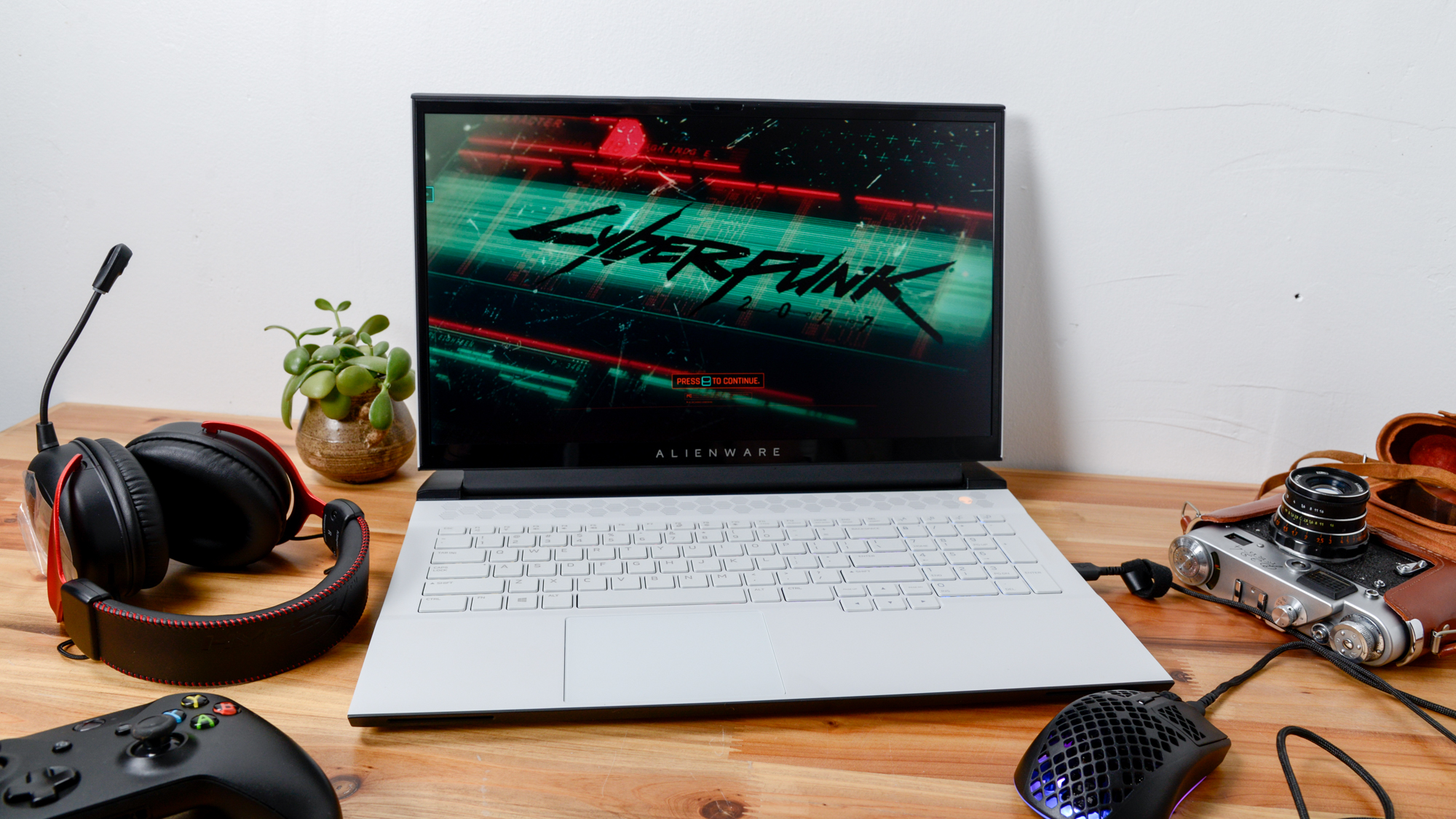Nvidia GeForce RTX 30 series mobile GPUs: A beginner's guide
A better look at Nvidia's powerful graphics cards, complications and what laptop suits you

During CES 2021, Nvidia made the huge (yet expected) announcement of the next generation of gaming laptop hardware in the form of GeForce RTX 30 series laptop GPUs. Good news, they're frickin' sweet! Bad news, Nvidia has made it more difficult than ever to figure out which one is best suited for you.
From eliminating Max-Q labeling, making it harder for the average laptop consumer to figure out which device has a handicapped GPU, to RTX 3070s having higher base clock speeds than RTX 3080s, my head hurts. Whatever happened to 80 is better than 70? Take me back to the simple days.
- Nvidia RTX 30 series FAQ
- Alienware m17 R4 review
- Gigabyte Aero 15 with 4K OLED (2021, RTX 3070) review
There are quite a few different aspects at play, as some of Nvidia's 30 series GPUs are better suited for software engineers or display more realistic graphics, while others boost performance for that smooth frame rate in gaming. It may be a tad trickier to figure out, especially as the RTX 30 series don't exactly say what they do on the tin anymore, but the main thing to take away from this is Nvidia's new line of GPUs are pretty much all killer.
Thankfully, we got our hands on laptops that came with Nvidia 30-Series GPUs, including the recently reviewed the Asus TUF Dash F15 and Gigabyte Aero 15 with RTX 3070, the Aorus 15G with RTX 3070 Max-Q, and the Alienware m17 R4 with an RTX 3080. This gave us a better idea of how well each GPU performs.
Think of this as my dummy's guide to understanding Nvidia's RTX 30 series GPUs, so you can get a better idea of which graphics card is better suited for your next laptop purchase. There's plenty more info to digest, and you can find out more on what you need to know about Nvidia’s RTX 30-Series GPUs in our deep dive.
Nvidia RTX 3060: What you need to know
Why you can trust Laptop Mag

The Nvidia RTX 3060 is still essentially your entry-level graphics card, but still had the ability to out-perform an RTX 3080, in terms of boosted clock speeds (GHz), that is. Spec-wise, the RTX 3060 GPU has 3840 Nvidia CUDA cores (Nvidia's parallel computing platform that hits CPU cores out of the park), 1283 - 1703MHz boosted clock range and a GPU subsystem power (W) of 60 - 115.
If this looks like gibberish (this is a dummy's guide, after all), basically the more CUDA Cores in a GPU, the faster it can complete tasks related to graphics. In turn, higher CUDA core count, more realistic graphics.
As for Nvidia's boosted clock speeds, generally, this is all about performance, meaning smoother functionality when there's a lot of tasks happening, especially in games.
GPU subsystem power? This is where things get tricky. This could also be viewed as Total Graphics Power (TGP). As an example: a 115 W RTX 3060 could outperform an 80 W RTX 3080 depending on the given workload.
Labeling a graphics card with Max-Q usually distinguished which end of the range a laptop's GPU would offer, but now that Nvidia or the original equipment manufacturer (OEM) don't mention if an RTX GPU is a Max-Q variant in a laptop, it's harder to see how well the GPU will actually perform. This is why you should definitely read our laptop reviews before making a definite purchase.
Now that's out of the way, the RTX 3060 is definitely for those looking for a boost in performance rather than graphics, making it a fantastic mid-range gaming laptop. Its potential boosted clock speeds and high wattage means frame rates will be smooth.
Nvidia RTX 3070: What you need to know

The RTX 3070 GPUs will most likely be the most popular pick for gaming laptop enthusiasts, and will most likely be used more by OEMs. Its specs include 5120 CUDA Cores, 1290 - 1620MHz boost clock speeds and 80 - 125W.
The Gigabyte Aero 15 and Asus TUF Dash F15 were both put to the test in gaming. When the Aero 15 ran Assassin’s Creed Odyssey (1080p, Very High), it delivered 65 frames per second, which surpassed the average mainstream gaming laptop (61 fps) and the TUF Dash F15’s (51 fps).
On the Grand Theft Auto V benchmark (1080p, Very High), the Aero 15 hit 96 fps, cruising past the average premium gaming laptop (87 fps) and the Asus TUF Dash F15 (84 fps).
We also ran the gaming benchmarks in 4K. On the Assassin’s Creed Odyssey and Valhalla tests, the Aero 15 reached 35 fps and 29 fps, respectively. These are about half the frame rates than the 1080p setting.
The RTX 3070 is definitely a powerhouse, and you'll find that the 3070 has a higher base clock speed and base subsystem power than the RTX 3080 and even RTX 3090, which is a little backward. Being used on higher-end mid-range laptops even means it will generally be cheaper than laptops with an RTX 3080.
Nvidia RTX 3080: What you need to know

The RTX 3080 boasts 6144 CUDA cores, 1245 - 1710MHz boost clock speeds and 50 - 150+W. This could potentially be disappointing to those who paid extra for an RTX 3080 and don't hit the higher-end clock speeds or wattage, especially if an RTX 3070 or even 3060 GPU laptop out-performs it. That said, it certainly has a higher potential for performance and will clearly display higher graphical details.
In our review of the Alienware m17 R4, the RTX 3080 fully utilized the laptop's 360Hz refresh rate. Along with its 16GB of VRAM, we ran the Assassin’s Creed Odyssey benchmark, and the m17 R4 reached 78 fps, sailing past the 60-fps premium gaming laptop average. Compared to the Aorus 17G, which also has an RTX 3080 GPU, it delivered 65 fps.
During the Grand Theft Auto V test, the m17 R4 obtained 120 fps, crushing the 89 fps average and the Aorus 17G 92 fps.
If anything, this clearly shows the differing power of an RTX 3080 GPU. While both laptop GPUs displayed impressive frame rates, the m17 R4 blew the Aorus 17G out of the park. The moral lesson of the day: read reviews before making that purchase.
Outlook
Nvidia's RTX 30-series has thrown a spanner in the works in terms of how powerful a laptop can be. No longer is it just the simplicity of 70 being better than 60 and so forth, as each 30-series GPU distinctly offers different graphics and performance potential. To conclude, you'll want to check out our reviews for the best laptops, especially if they come installed with RTX 30 GPUs. We've got you covered if you're after more of a deep dive into Nvidia's RTX 30 series features.
Stay in the know with Laptop Mag
Get our in-depth reviews, helpful tips, great deals, and the biggest news stories delivered to your inbox.

Darragh Murphy is fascinated by all things bizarre, which usually leads to assorted coverage varying from washing machines designed for AirPods to the mischievous world of cyberattacks. Whether it's connecting Scar from The Lion King to two-factor authentication or turning his love for gadgets into a fabricated rap battle from 8 Mile, he believes there’s always a quirky spin to be made. With a Master’s degree in Magazine Journalism from The University of Sheffield, along with short stints at Kerrang! and Exposed Magazine, Darragh started his career writing about the tech industry at Time Out Dubai and ShortList Dubai, covering everything from the latest iPhone models and Huawei laptops to massive Esports events in the Middle East. Now, he can be found proudly diving into gaming, gadgets, and letting readers know the joys of docking stations for Laptop Mag.
